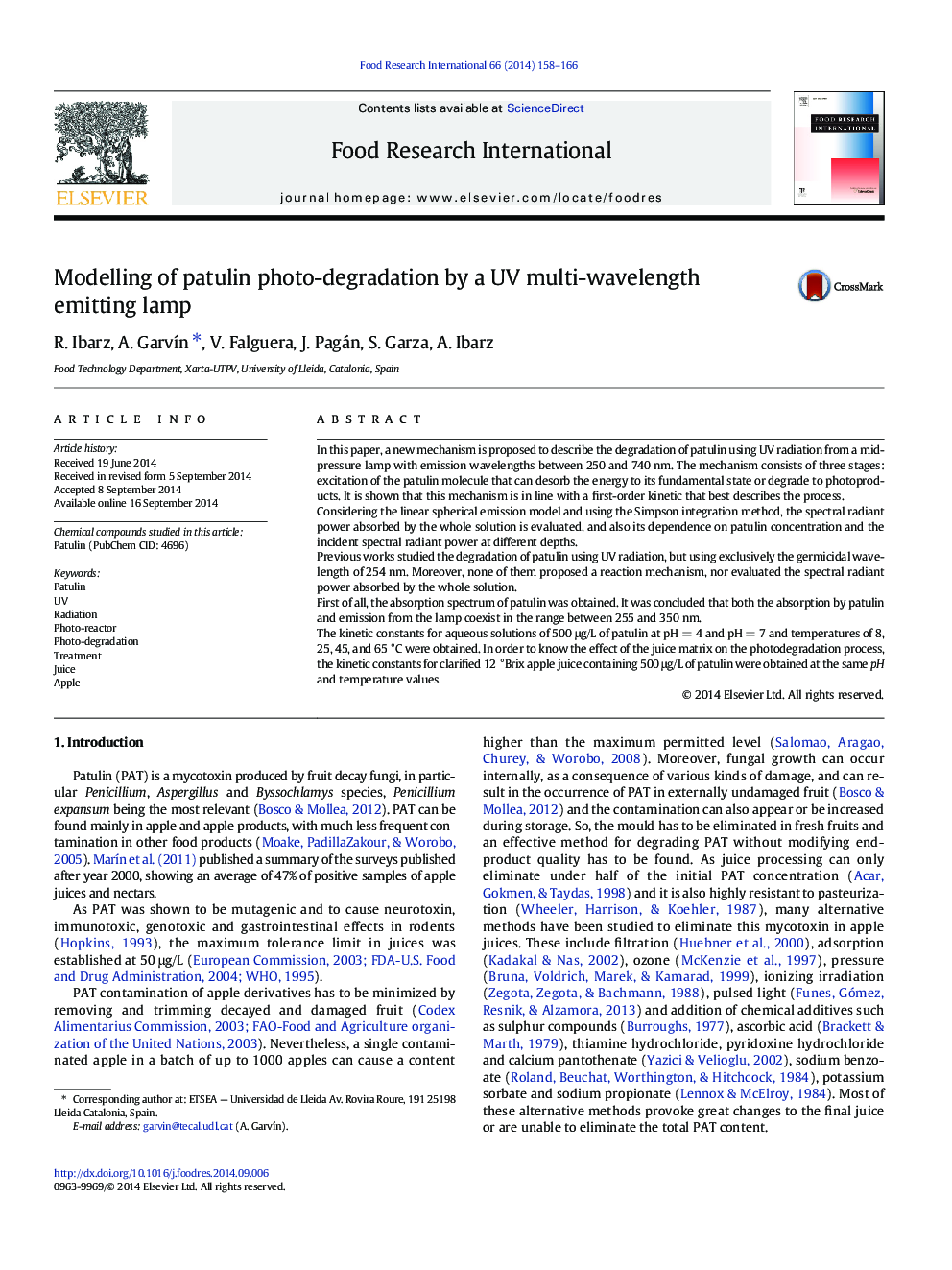| کد مقاله | کد نشریه | سال انتشار | مقاله انگلیسی | نسخه تمام متن |
|---|---|---|---|---|
| 6396167 | 1628480 | 2014 | 9 صفحه PDF | دانلود رایگان |

- A mid-pressure multi-wavelenth lamp has been used to degrade patulin.
- A reaction mechanism is proposed, concluding a first-order kinetic.
- The power absorbed by the solution is evaluated.
- The kinetic constants were obtained for aqueous solution and clarified apple juice.
In this paper, a new mechanism is proposed to describe the degradation of patulin using UV radiation from a mid-pressure lamp with emission wavelengths between 250 and 740 nm. The mechanism consists of three stages: excitation of the patulin molecule that can desorb the energy to its fundamental state or degrade to photoproducts. It is shown that this mechanism is in line with a first-order kinetic that best describes the process.Considering the linear spherical emission model and using the Simpson integration method, the spectral radiant power absorbed by the whole solution is evaluated, and also its dependence on patulin concentration and the incident spectral radiant power at different depths.Previous works studied the degradation of patulin using UV radiation, but using exclusively the germicidal wavelength of 254 nm. Moreover, none of them proposed a reaction mechanism, nor evaluated the spectral radiant power absorbed by the whole solution.First of all, the absorption spectrum of patulin was obtained. It was concluded that both the absorption by patulin and emission from the lamp coexist in the range between 255 and 350 nm.The kinetic constants for aqueous solutions of 500 μg/L of patulin at pH = 4 and pH = 7 and temperatures of 8, 25, 45, and 65 °C were obtained. In order to know the effect of the juice matrix on the photodegradation process, the kinetic constants for clarified 12 °Brix apple juice containing 500 μg/L of patulin were obtained at the same pH and temperature values.
Journal: Food Research International - Volume 66, December 2014, Pages 158-166